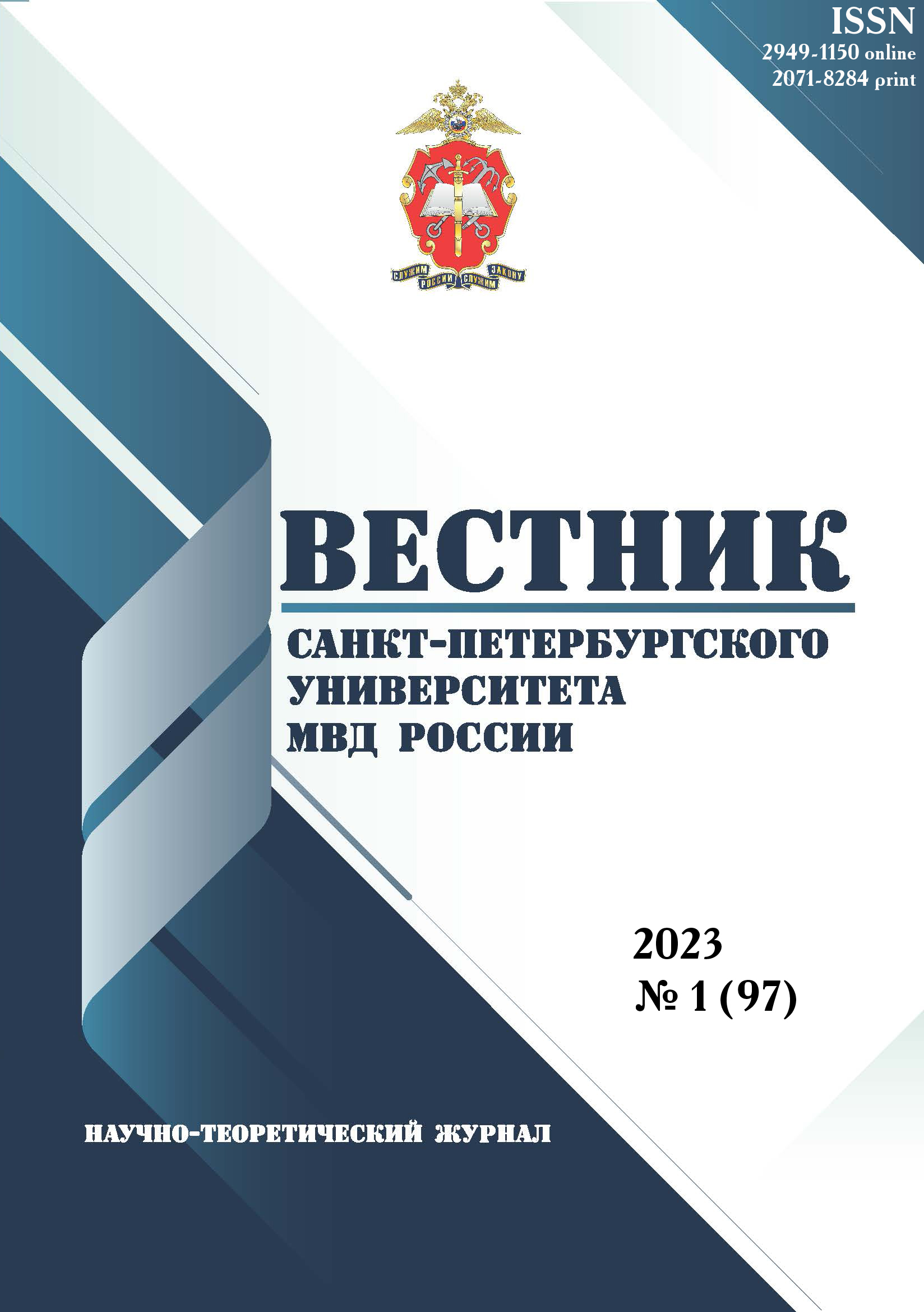Moscow, Moscow, Russian Federation
UDC 159.99
Introduction. The presented paper examines the reasons for the development of youth extremism. In this study the author draws attention to information infantilism typical for young people today. Starting from «being determines consciousness» the author points out the objective reality of active youth involvement in virtual world. As active users of the Internet, young people join in cyber interaction: communication, exchange of information of both personal and group nature. Specific features of virtual interaction combined with personal immaturity lead to the fact that young users, not being fully aware of legal consequences of their actions, verbally or visually express ideas that fall under the definition of extremism stated in the Federal law № 114 of 25 July 2002 «On counteracting extremist activities», as well as become victims of recruiters to extremist groups, which actively operate in the information space and through communication in social networks, on dating sites. The aim of the paper is to consider information infantilism as one of the causes of dissemination of extremism through virtual environment. This theoretical construct proposes to reflect the specifics of communications in virtual environment and the characteristics of individuals, which together create prerequisites for their involvement in extremist activities and dissemination of extremism. Methodology. The problem was examined through the prism of psychological knowledge, which makes it possible to uncover the underlying features of human psychology that contribute to involvement in extremist activities in the virtual environment. Methods and techniques. The research was based on general scientific methods. Results. Theoretical study substantiates the concept of «information infantilism», which is one of the reasons for the dissemination of extremism through the virtual space. Scientific novelty: the author introduces the term «information infantilism», which is proposed to be considered as one of the psychological causes of involvement in extremist activities and the spread of extremism. Practical significance of the new concept is that it can be used in the process of education of youth and in the prevention of extremist crimes.
Internet, information infantilism, cyber extremism, maximalism, youth extremism, legal infantilism, social networks
1. Abramov A. E. Molodezhnyy ekstremizm kak ugroza nacional'noy bezopasnosti Rossii v usloviyah globalizacii // Obschestvo: politika, ekonomika, pravo. - 2020. - № 5 (82). - S. 52-55.
2. Androsova M. I., Timofeeva Ya. A. Infantilizm kak problema razvitiya lichnosti // Problemy sovremennogo pedagogicheskogo obrazovaniya. - 2020. - № 69-1. - S. 33-36.
3. Blinova N. M. Osobennosti obrazov partnerov po obscheniyu v Internete i v real'noy zhizni // Mir nauki. Pedagogika i psihologiya. - 2016. - T. 4. - № 4. - S. 1-15.
4. Buraeva L. A. O metodah verbovki zhenschin terroristicheskimi organizaciyami posredstvom seti Internet // Probely v rossiyskom zakonodatel'stve. - 2018. - № 5. - S. 190-193.
5. Grammatikov V. V. Proyavleniya pravovogo infantilizma v advokatskoy srede // Social'no-politicheskie nauki. - 2016. - № 2. - S. 158-161.
6. Denisov D. V. Bezopasnost' v Internete: zaschita ot vneshnih ugroz // Prikladnaya informatika. - 2016. - T. 11.- № 2 (62). - S. 57-64.
7. Dushina T. V., Semkina E. N. Osobennosti proyavleniya ideologii i praktiki ekstremizma i terrorizma v sovremennoy Rossiyskoy globaliziruyuscheysya deystvitel'nosti // Obschestvo: politika, ekonomika, pravo. - 2019. - № 10 (75). - S. 12-15.
8. Zhavoronkova T. V. Ispol'zovanie seti Internet terroristicheskimi i ekstremistskimi organizaciyami // Vestnik Orenburgskogo gosudarstvennogo universiteta. - 2015. - № 3 (178). - S. 30-36.
9. Ivliev P. A. Anonimnost' v internete: problemy i osobennosti // Mezhdunarodnyy zhurnal gumanitarnyh i estestvennyh nauk. - 2019. - № 4-2. - S. 6-8.
10. Maslikova O. S. Yazykovye osobennosti obscheniya v Internet-prostranstve // Innovacionnaya nauka. - 2019. - № 9. - S. 69-72.
11. Muraev P. P., Yakovlev D. N., Shalimova V. V. Osobennosti profilaktiki ekstremizma v molodezhnoy srede // Legal Concept. - 2020. - T. 19. - № 2. - S. 43-49.
12. Narbut N. P., Puzanova Zh. V. Antiterroristicheskoe vospitanie molodezhi: novye vyzovy novoy epohi : Vserossiyskaya nauchno-prakticheskaya konferenciya «Aktual'nye problemy antiekstremistskogo i antiterroristicheskogo vospitaniya molodezhi» // Vestnik Rossiyskogo universiteta druzhby narodov. Seriya: Sociologiya. - 2015. - № 4. - S. 181-185.
13. Nekrasova E. V. Informacionnyy aspekt ekstremizma i terrorizma i destruktivnye tendencii v SMI // Vestnik Rossiyskogo universiteta druzhby narodov. Seriya: Sociologiya. - 2013. - № 1. - S. 57-66.
14. Radaykin M. F. Kratko o probleme anonimnosti v seti Internet // Probely v rossiyskom zakonodatel'stve. - 2013. - № 2. - S. 25-28.
15. Sundiev I. Yu., Smirnov A. A. Tehnologii geymifikacii v ekstremistskoy i terroristicheskoy deyatel'nosti: opyt ekspozicii // Nauchnyy portal MVD Rossii. - 2021. - № 3 (55). - S. 39-51.
16. Falkina S. A. Psihologicheskie harakteristiki podrostkov, sklonnyh k viktimnomu povedeniyu v Internet-seti // Perspektivy nauki i obrazovaniya. - 2014. - № 1 (7). - S. 230-236.
17. Yakoba I. A. Internet kak sredstvo social'noy kommunikacii: osobennosti virtual'nogo obscheniya // Vestnik Irkutskogo gosudarstvennogo tehnicheskogo universiteta. - 2011. - № 8 (55). - S. 342-347.














